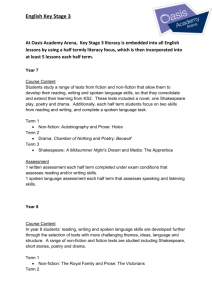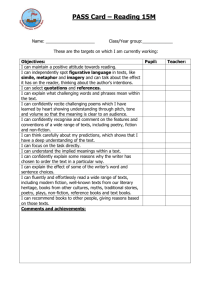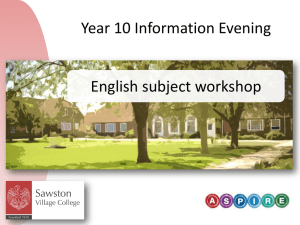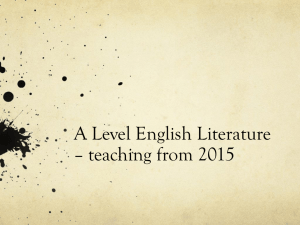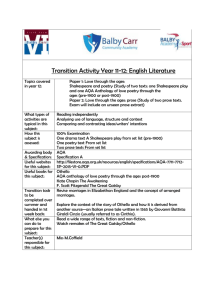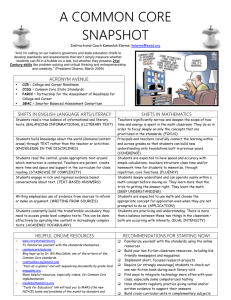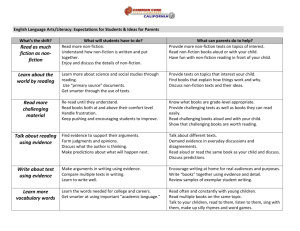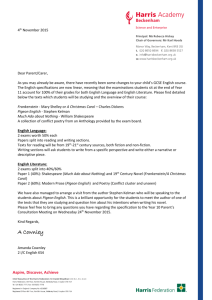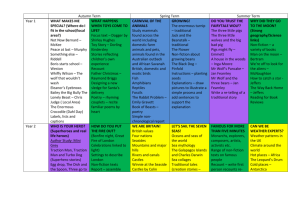click here - Oasis Academy MediacityUK
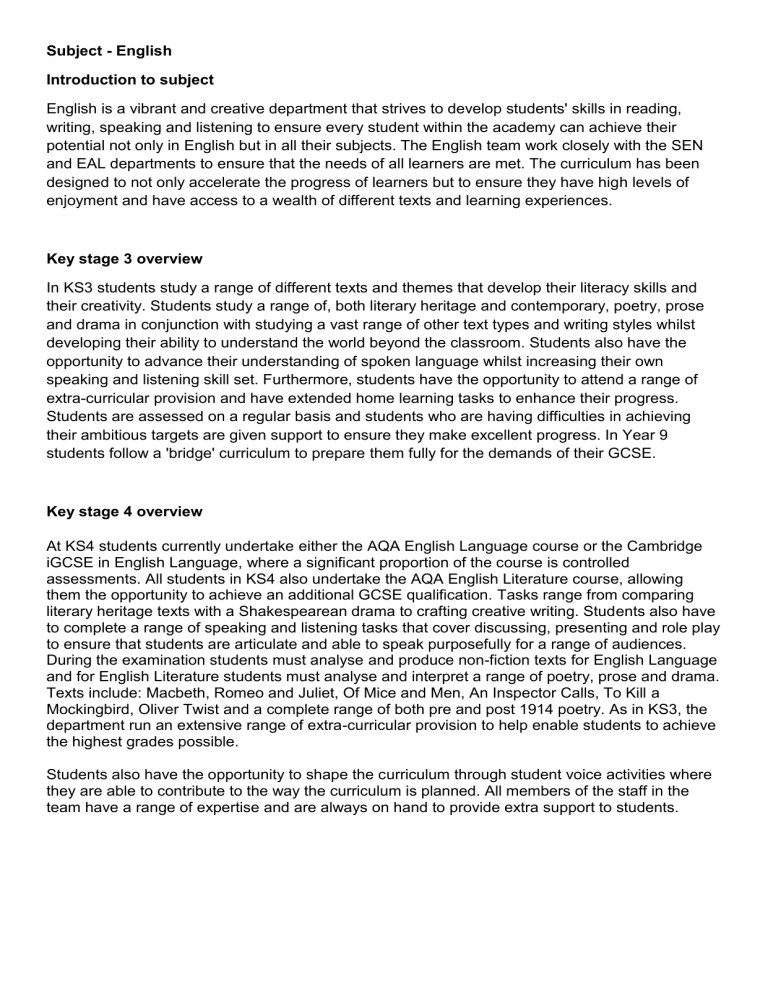
Subject - English
Introduction to subject
English is a vibrant and creative department that strives to develop students' skills in reading, writing, speaking and listening to ensure every student within the academy can achieve their potential not only in English but in all their subjects. The English team work closely with the SEN and EAL departments to ensure that the needs of all learners are met. The curriculum has been designed to not only accelerate the progress of learners but to ensure they have high levels of enjoyment and have access to a wealth of different texts and learning experiences.
Key stage 3 overview
In KS3 students study a range of different texts and themes that develop their literacy skills and their creativity. Students study a range of, both literary heritage and contemporary, poetry, prose and drama in conjunction with studying a vast range of other text types and writing styles whilst developing their ability to understand the world beyond the classroom. Students also have the opportunity to advance their understanding of spoken language whilst increasing their own speaking and listening skill set. Furthermore, students have the opportunity to attend a range of extra-curricular provision and have extended home learning tasks to enhance their progress.
Students are assessed on a regular basis and students who are having difficulties in achieving their ambitious targets are given support to ensure they make excellent progress. In Year 9 students follow a 'bridge' curriculum to prepare them fully for the demands of their GCSE.
Key stage 4 overview
At KS4 students currently undertake either the AQA English Language course or the Cambridge iGCSE in English Language, where a significant proportion of the course is controlled assessments. All students in KS4 also undertake the AQA English Literature course, allowing them the opportunity to achieve an additional GCSE qualification. Tasks range from comparing literary heritage texts with a Shakespearean drama to crafting creative writing. Students also have to complete a range of speaking and listening tasks that cover discussing, presenting and role play to ensure that students are articulate and able to speak purposefully for a range of audiences.
During the examination students must analyse and produce non-fiction texts for English Language and for English Literature students must analyse and interpret a range of poetry, prose and drama.
Texts include: Macbeth, Romeo and Juliet, Of Mice and Men, An Inspector Calls, To Kill a
Mockingbird, Oliver Twist and a complete range of both pre and post 1914 poetry. As in KS3, the department run an extensive range of extra-curricular provision to help enable students to achieve the highest grades possible.
Students also have the opportunity to shape the curriculum through student voice activities where they are able to contribute to the way the curriculum is planned. All members of the staff in the team have a range of expertise and are always on hand to provide extra support to students.
Oasis Academy:MediaCityUK Curriculum 2014-15
English programme of study
Year 7
Term 1 Topics
Reading, writing and understanding poetry.
Selection of poems from a range of authors.
The Wonderful World of Roald
Dahl. Using the novels of
Roald Dahl to compare how the written word is translated to screen
Year 8
Term 2 Topics
Short stories. Setting the scene. Writing to describe.
Term 3 Topics
Spy Unit. Reading a range of fiction and non-fiction texts and developing writing skills.
Introduction to Shakespeare incl. selected scenes from The
Tempest and other comedies.
Non-fiction: Travel
Writing/Autobiography. School memories.
Term 1 Topics Term 2 Topics
‘Reading, writing and understanding poetry ’.
Selection of poems from a range of authors. Reading and writing focus.
Myths and Monsters: Media and non-fiction. Analysis of writing to advise and inform,
Shakespeare/Oratory (famous speeches) focusing on
Macbeth and Henry V Novel Study – ‘The Outsiders’,
‘Boy in the striped pyjamas’,
‘Coraline’.
Term 3 Topics
Newspapers and Advertising – focus on Presentational devices, leading to the creation of an advertising campaign.
Original Writing: Short Story based on the Gothic Genre.
Studying extracts from
Dracula, Frankenstein, and
Edgar Allen Poe.
Year 9
Term 1 Topics
Reading, writing and understanding poetry - selection of poems from a range of authors.
Analysing genre: Gothic writing. Dracula, Frankenstein,
Edgar Allen Poe.
Term 2 Topics Term 3 Topics
Writing Triplets and non-fiction language analysis:
Shakespeare: Study of whole text. Romeo & Juliet / Much
Ado About Nothing.
Argue/Persuade/Advise
Inform/Explain/Describe Essay produced in controlled conditions
Novel Study: The Hunger
Games, To Kill a Mockingbird,
Curious Incident of the Dog in the Night time.
Original Writing: Diversity and hate crime.
Black Roses.
Year 10
Term 1 Topics
Analysing Non-Fiction Texts, Writing
Styles and Types, Controlled
Assessment: Creative Writing,
Information and Explanation Texts
Year 11
Term 1 Topics
Term 1 Topics Modern Prose: Of Mice and Men – controlled assessment / examination preparation. English
Literature: Poetry Cluster, Speaking and Listening Unit
.
GCSE ENGLISH LANGUAGE/ iGCSE ENGLISH LANGUAGE and ENGLISH
LITERATURE
Term 2 Topics Term 3 Topics
Term 2 Topics Shakespearean
Tragedy, English Literature CA:
Shakespeare and Literary Heritage,
Writing to Describe
Term 3 Topics English Language:
Spoken Language study - Controlled
Assessment. English Language Unit 1
Revision and Mock.
GCSE ENGLISH LANGUAGE/ iGCSE ENGLISH LANGUAGE and ENGLISH
LITERATURE
Term 2 Topics Term 3 Topics
Term 2 Topics Analysing and Producing
Non-Fiction Material – examination.
English Literature: play study, An
Inspector Calls – examination.
Term 3 Topics Revision for GCSE examinations
